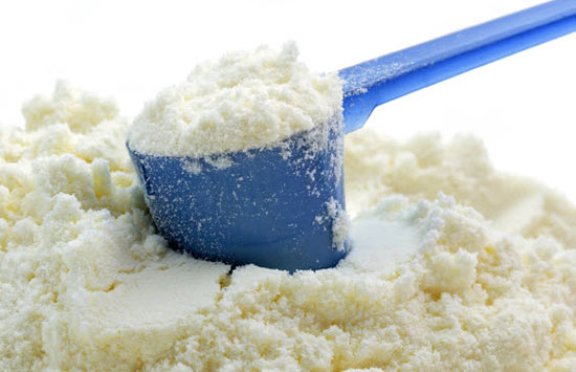COLOMBO – Sri Lanka’s cabinet has decided to abolish the import tax of Rs 175 per kg of milk powder to maintain its current price, following demands by importers for a price hike, and consumers complained of milk powder shortages in most parts of the country.
Milk powder importers have demanded a price hike citing increased price in the global market, expensive freight charges, and depreciation of the rupee, with some importers paying far above the non-credible peg set at Rs 203.
The current milk food shortage has been attributed to the failure of the Consumer Affairs Authority to allow an upward price revision.
Co-cabinet spokesman Keheliya Rambukwella said on Tuesday (10), the government had taken a progressive decision to abolish the import tax on milk powder and give up the considerable chunk of government revenue to maintain the milk powder prices at the same level.
“This is one of the main avenues of government revenue. But we realized that it is important to allow this at this juncture,” he said,
Sri Lanka’s spending on diary imports rose by a third to US$ 333 million last year compared to US$ 249.3 million in 2016, central bank data showed.
However, the government has been trying to reduce the import of milk powder by substituting it with locally produced liquid milk and milk powder in pushing an autarky.
Rambukwella said the consumption of locally produced milk including liquid milk has increased to 40% of the total milk consumption and 60% of the demand is still being imported.
“While not inconveniencing the milk powder consumers in the short term, there is a process underway to achieve self-sufficiency in the medium to long term,” he said, adding that the country should be able to stop the imports by then.
Sri Lanka has been promoting the consumption of fresh milk, though there have been orchestrated protests in the past demanding a complete ban of milk powder imports citing the presence of harmful chemicals.
In 2013, Sri Lanka saw the New Zealand-based dairy giant Fonterra withdraw milk powder under orders from the Sri Lankan authorities, which claimed the products showed traces of the toxic agricultural chemical dicyandiamide, although the company disputed the accuracy of the testing.
In February, Sri Lanka Agriculture Minister Mahindananda Aluthgamage told Parliament that the country would launch an ambitious program to be nearly self-sufficient in liquid milk, aiming to meet most of the national demand by 2024, including the of import 1.5 million milking cows.
There are over 300,000 liquid milk production farms in Sri Lanka, with Milco, Pelawatte Dairies, and Nestle Lanka producing milk powder locally.
Dairy products are mainly imported from New Zealand and Australia, other countries include Denmark, the Netherlands, and India.
-economynext.com


